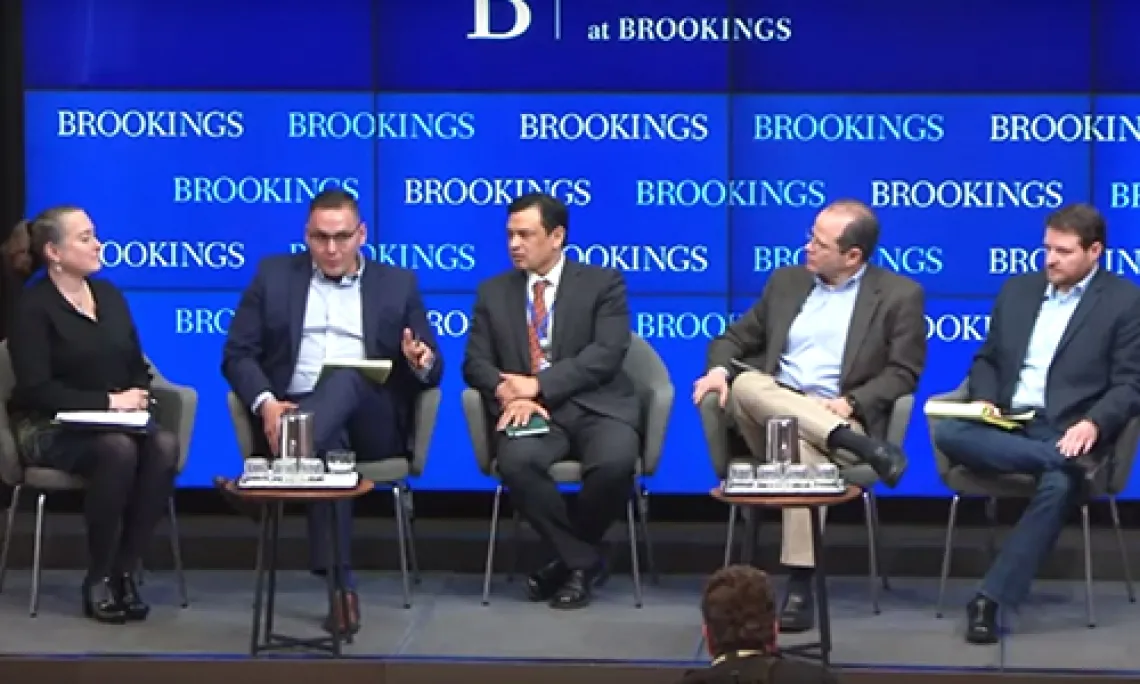Indian Gaming Looks Forward

In February, the Brookings Institute hosted The Future of American Indian Gaming: The next 30 years. Organized by Randall Akee, a David Rubenstein Fellow at the Brookings Institute and frequent Native Nations Institute (NNI) contributor, the event presented key findings from the field. NNI was honored to help shape the discussion. The symposium was an opportunity to look back on the social and economic history, impact, and future of Indian gaming since 1988 when the Indian Gaming Regulatory Act was signed.
Two panels addressed topics such as positive changes in health and well-being; ongoing needs to diversify economic growth, demands on existing infrastructure, and differentiating commercial and tribal gaming. The first panel focused on future challenges of Indian gaming while the second, moderated by NNI Research Director Miriam Jorgensen, concentrated on areas of research. Jorgensen shared, "It was a tremendous honor to be on the stage with so many esteemed leaders across Indian Country. Our panel discussed Indian gaming from a research and policy standpoint. We are excited to see strong markers that demonstrate the importance of gaming and its related enterprises as economic engines for both tribes and their surrounding communities. Additionally, more work is needed to understand the ongoing effects of distribution policies for Native nations and to analyze trends that inform public policymaking."
Raymond Foxworth, Vice President of the First Nations Development Institute (FNDI) and panelist at the event, spoke about a FNDI study that looked at what mainstream individuals know about Native people. He mentioned that the majority of people don't know anything about Indigenous people and their history, and what they do tends to be romanticized. Indian gaming is one of the first things people can identify and what they know tends to come with lots of misperceptions. An important area of research going forward will be to address these disparities and to emphasize the difference between tribal and mainstream gaming. Foxworth shared that, "Looking at narratives is important because they can be changed. Certain inputs that can increase more accurate information and knowledge which is what we're trying to unpack."
Watch Panel Discussion II: Research Findings on the Impact of American Indian Gaming>
Images: Miriam Jorgensen and Raymond Foxworth on "Panel Discussion II: Research Findings on the Impact of American Indian Gaming"

